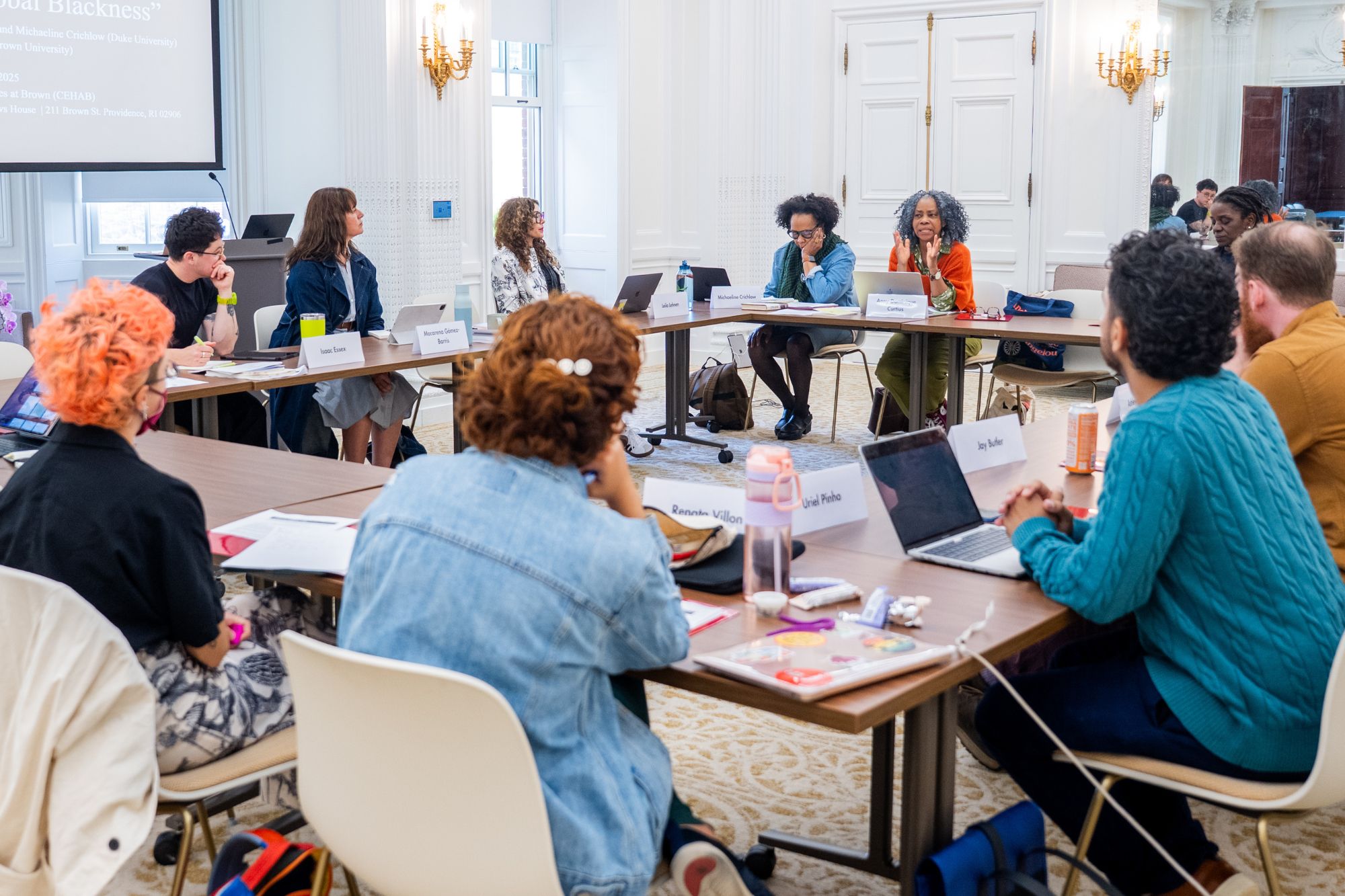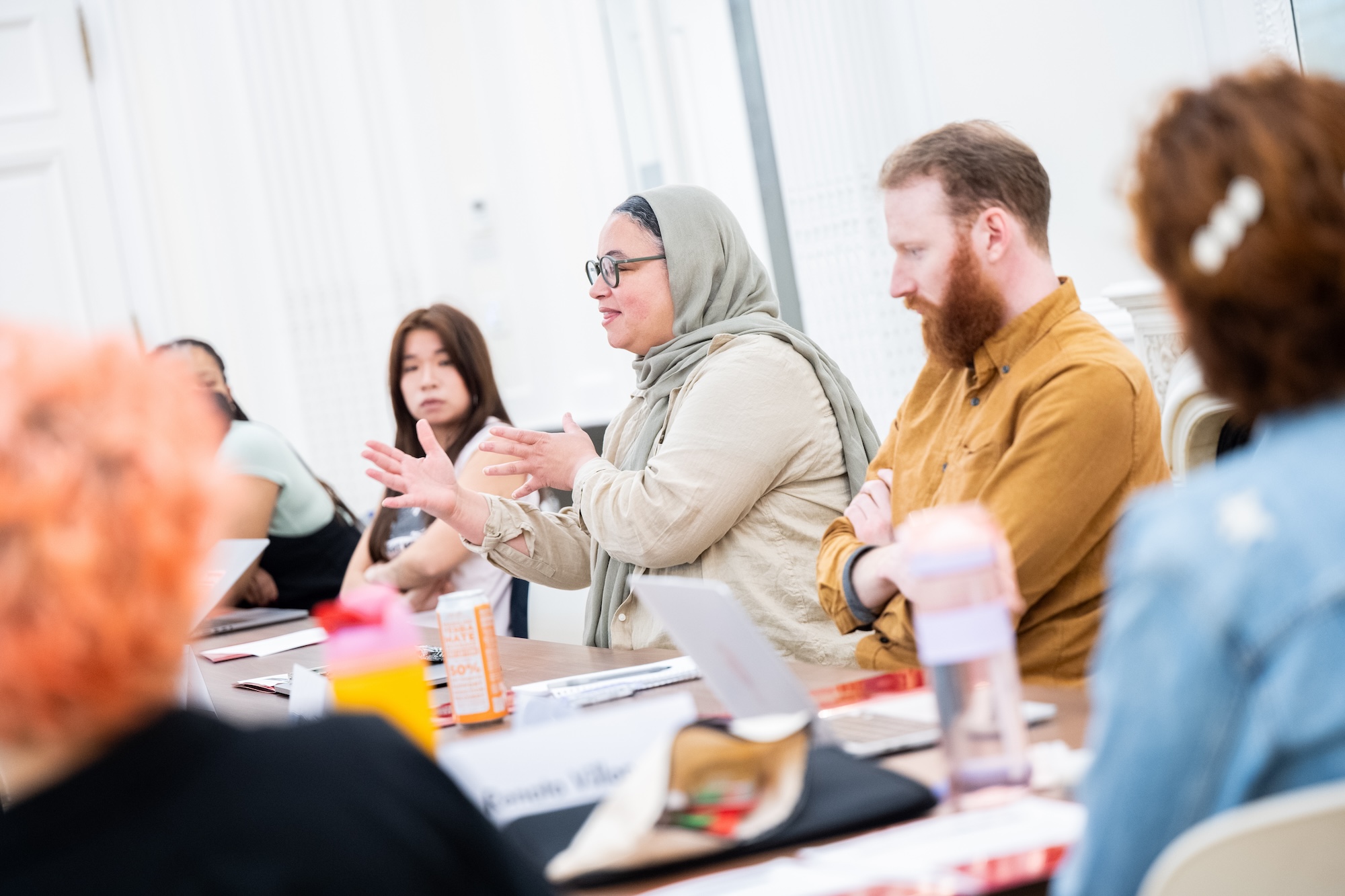This past academic year, we hosted or supported seminars, workshops, and lectures to further our study and practice. At our February launch, Leanne Betasamosake Simpson gave a powerful and beautiful lecture, “Theory of Water,” followed by an open seminar with students the next day. She reminded us of ancestral perspectives on land and water as a way to decolonize knowledge production. Among our other events for the year were a conversation on microplastics and the urgency of industrial regulation, featuring Heather Davis (Eugene Lang College, the New School | Culture and Media) and Xan Chacko (Brown University | Science, Technology, and Society), and a public session of the graduate seminar “Decolonial Futurities: Submerged Perspectives from and within the Americas,” featuring Dominican writer and musician Rita Indiana.
.jpg)
The breadth of Brown University faculty’s engagement with the environmental humanities was apparent in the range of courses offered this past year, in American studies, anthropology, English, environmental studies, French and Francophone studies, history, political thought, Portuguese and Brazilian studies, and religious studies, from the Amazon to East and South Asia, from narrative forms to material cultures, and from democratic reinventions to Indigenous poetics.
And this past summer, the center hosted the second annual installment of the weeklong “In the Dissolution: Climate Change, Decolonization, and Global Blackness Summer Workshop” in partnership with Duke University, which I co-led with Michaeline Crichlow (Duke University | African and African American Studies). A cohort of graduate students and invited artists and scholars joined in seminars, discussions, and readings exploring the interconnectedness of climate change and colonial exploitation. Invited artists and scholars included Julian Talamantez Brolaski, Jayna Brown (Brown University | Theatre Arts and Performance Studies), Anny-Dominique Curtius (University of Iowa | Francophone Studies), Denise Ferreira da Silva (New York University | Spanish and Portuguese), Leila Lehnen (Brown University | Portuguese and Brazilian Studies), madison moore (Brown University | Modern Culture and Media), and Alexander Weheliye (Brown University | Modern Culture and Media).
This coming year we continue our focus on land, water, the oceanic, plastics, carbonization and anti-colonial methodologies through several upcoming talks and a symposium that centers mining and extraction. The environmental humanities are a place from which we are planting, critiquing, creating, and exfoliating with attention to and respect for all earthly existence.
We received a large volume of stellar applications for this year’s CEHAB postdoctoral positions. I thank all of the talented scholars and artists who applied. We are pleased to welcome two new extraordinary fellows for the next two years: Eda Tarak, an environmental anthropologist of maritime trade, and Cherod Johnson, a scholar of African American literature, visual culture, and documentary film. At CEHAB, they will teach our students and conduct their research to challenge normative disciplinary and methodological frameworks.
Please follow us on Instagram or subscribe to the Cogut Institute’s mailing list to find out more about our work this coming academic year. Thank you to the hundreds of scholars, students, and community members who have attended our events and made our first year so outstanding in these impossible times.
Explore the 2024–25 CalenDar of environmental humanities Events
.jpg)

